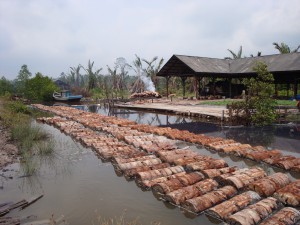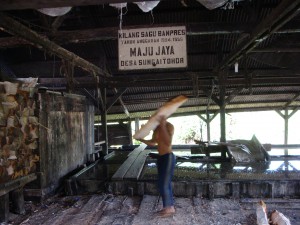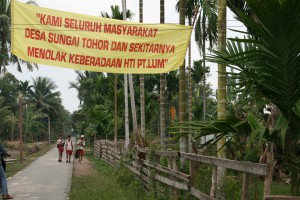 There is a beautiful place in the world called Tebing Tinggi. It is located on the island of Sumatra in Indonesia. I had the honor of visiting Tebing Tinggi this February and meeting many of the people who live there. While I was there, the head of the village took the others with whom I was visiting and me to see their community-run sago farm.
There is a beautiful place in the world called Tebing Tinggi. It is located on the island of Sumatra in Indonesia. I had the honor of visiting Tebing Tinggi this February and meeting many of the people who live there. While I was there, the head of the village took the others with whom I was visiting and me to see their community-run sago farm.
Sago is a starch extracted from the pith of sago palm stems. These palms grow in tropical lowland forest and freshwater swamps across Southeast Asia and serve as a major food staple for people in the region. In Tebing Tinggi, their sago farm is owned and run by hundreds of families and provides both food and a good source of income to the community.
Tebing Tinggi’s sago farm is being threatened by Indonesia’s pulp and paper industry.
The village head told us that their community’s sago farm was under threat by Indonesia’s second largest pulp and paper company, Asia Pacific Resources International Holdings Limited (APRIL). He told us that APRIL had received a cutting permit from the Indonesian government to clear the forest where their sago palms grow. With this permit, APRIL had entered the area with bulldozers and logging machinery and started cutting. However, the community had not agreed to this. In fact, the community actively opposes APRIL’s presence, and they have declared their opposition to the government, the company, and through banners hung on their main streets.
The people of Tebing Tinggi continue to fight to keep APRIL out of their forests and to keep their sago farm productive. But they need our support to tell companies in the U.S. that we also oppose pulp and paper companies’ expansion into Indonesian forests and on community lands. APRIL and their competitor Asia Pulp and Paper (APP) produce paper from Indonesian rainforest destruction for books, copy paper, and toilet paper being sold in the U.S. and elsewhere.

